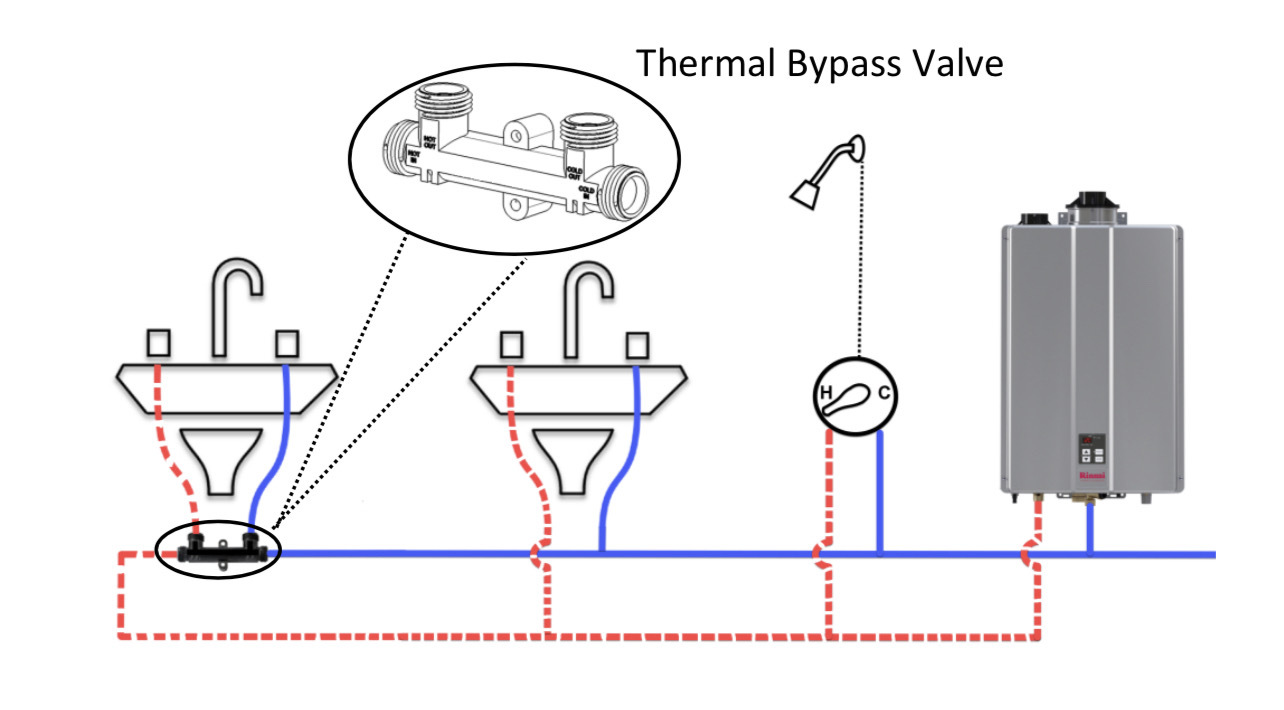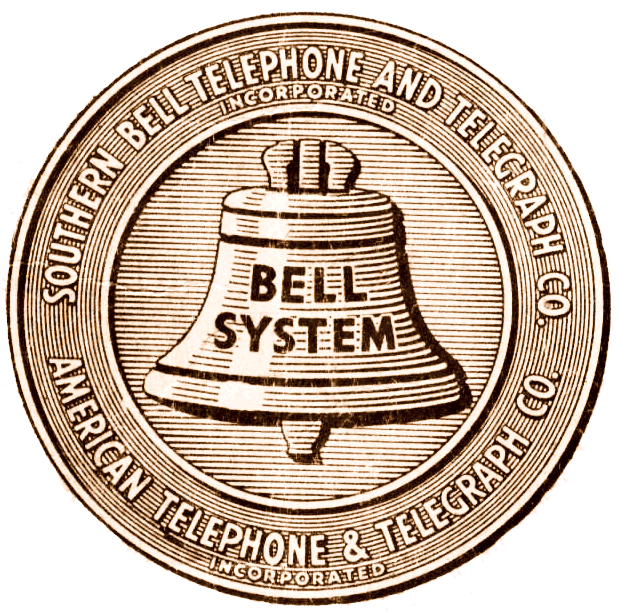It takes a few minutes for my tankless water heater to warm up, so we end up wasting a lot of water in our shower. Is there a way to avoid this? A friend mentioned a “comfort valve” or something? What is it and how does it work? Or is there another solution? Thx!
With a tankless heater, there’s nothing to warm up. Hot water is basically instant when it comes out.
How far is your shower from the heater? Usually, long times to first heat are because you have to go through all the cold water sitting in the line before the hot water reaches you.
Yes, that. That’s a better explanation of the problem. Thanks. The shower is way on the other side of the house and up a floor.
They make instant recirculation pumps that cycle the water through the tankless in a loop and stop when the hot water gets back to the pump. We have one. If you don’t already have the return pipes for it, you’d need some additional plumbing work. (Either way, it should be professionally installed).
It’s the same system you’d have for a tank, but it can’t run all the time, or it burns up the heater. You have to trigger it. They make flow switches, but mine (new construction) was cheesed. I just set up a zigbee switch with a 1 minute timer to trigger the pump.
If wiring and plumbing allow, install another tankless heater closer to the shower. I just put one into my one bedroom apartment and it was reasonably simple and small.
Unfortunately, the shower has no exposed plumbing and the gas line is back near the ground floor heater.
I don’t think I’ve ever seen a shower in the US (assuming you’re in the US) without access to the plumbing somewhere, I’m sure they probably exist somewhere, but it’s not common in my experience, usually there’s a little access panel on the other side of the wall somewhere, maybe hidden in a closet or behind a piece of furniture or something. If there’s not, I’d consider adding one anyway, at some point if you’re there long enough you’re probably going to want access to it for some issue or project that comes up down the line.
They make small tankless electric water heaters that run off of regular 110V outlets for heating a single sink or shower, if there’s convenient electrical nearby you may be able to just hook one of those up.
This is not my experience at all. I haven’t had a single house where the plumbing was accessible
Living in the US I’ve never seen what you’re describing
What part? Most houses I’ve seen in the Northeast either have some kind of access panel, or the shower is backed by a closet in another room where you could cut in if you needed to.
I’m in Jersey and I do not have that on my home. The only home I can think of that had it was my childhood home. Current home is 1920s, childhood home was probably 50s, teen home was 80s, and lived in various other places after that, and really never saw the access panel, though I agree it makes sense to have.
Form over function, can’t have people judging me for my prudence.
The house I purchased is the first time I’ve ever even seen access to shower pipes. I’ve got an access panel in my closet to a space above the garage that has access to the ones for the guest bath. I’m pretty sure it’s not intentional either since the space goes to the master bath as well yet the shower is set up in a way that doesn’t have access.
In my experience you usually have to tear out parts of a wall to access shower/tub plumbing. Definitely seems dumb now that someone pointed it out.
Never seen that. Always gotta break open dry wall for that kinda work.
Cheapskate subdivision builders commonly build on concrete slabs anymore with no way to access plumbing.
Building on a concrete slab doesn’t exactly make a difference when I’m talking about an access panel in a wall though
Yeah it never goes through the attic.
You’ll have to relocate the heater closer to the shower. You can have someone run the gas line to the new location. That’s about all you can do.
You could insulate the hot water pipe, but that will only help when the water in the pipe is already hot, like if someone showered earlier. It only extends the time the water already in the pipe remains hot.
They could install a small - around 2 gallon - electric water heater near the shower. I have a similar problem in my kitchen and it was solved quite cheaply by putting one of those under the sink.
I know it feels wasteful, but it’s a couple of pennies worth of water.
A couple of tricks I’ve seen in the zero waste forums is saving that water in a bucket and watering plants or flushing toilets with it.
I actually did this when I got my tankless. It saved like 6 units of water which was like 600 gallons over the 3 months but I was only like $17 off my bill.
$17 over 3 months isn’t worth the work imo but if you’re on a water budget or if it costs a lot in your area ymmv.
600 gallons for 17 dollars? That’s very high to me. We pay about 1€ per 1000L, so 600 gallons would cost about 2,20 euros.
America has a lot of desert and water starved areas, so there are higher costs in parts of the states.
Look into recirculating pumps. https://chilipeppersales.com
I have one of these, I put it on the slowest to heat/furthest sink. I put a 200uF capacitor on the trigger wires and plugged it in to a smart outlet. I added an automation in homeassistant to turn that outlet off after 3min whenever it gets cycled on. Whenever we need hot water we just toggle the button in HA and the showers all have hot water in <90s and <1L.
That fitting is installed between the hot and cold supply lines at a single location/fixture in the house, usually the farthest away from the heater. Then, a compatible tankless heater can use a pump to push hot water out while pulling the cold water back in through the cold supply line - so no extra recirculating pipe has to be installed. You trigger the recirculation with a switch at the fixture, on a schedule, or with an app/smart home device.

You could put a loop system that circulates the cold water from the pipes back through the heater for a set amount of time, then have it switch over to sending the water to the shower. The problem is that a set of pipes will need to be installed that can send the water back and may need a custom solution on switching from circulating to dispensing. In the long run, it would be cheaper, but it would take a fair amount of time to pay itself back. The positive is that it is cheaper than installing electric heater on every water outlet but more expensive for just one outlet.
As you said, the pipes are not easily accessible. You may need to just live with it or suck it up and pay the professionals to install either the whole house water scavanging system for every hot water tap to be hot or just an electric water heater for just the shower. Depends on how much you want to save water vs. how much cash you can throw at this problem.
If you’re worried about the water being waste recirculation pumps would do. Set them to run based off motion in your bathroom and kitchen.
Everyone is mentioning recirculation systems which will solve your problem. Just keep in mind that if you are constantly circulating the water through your heater, you will also be constantly heating the water. So you will stop wasting water and start wasting heat instead. It won’t be a huge amount and you may live somewhere you need to heat your house anyway.
Can I do the opposite? Water pressure in my town is very low, and our tank just can’t supply any two draws, so if someone has a shower, the dishes in the dishwasher just get dry-baked.
Idk the specifics, but probably. I’ve watched many videos on rainwater harvesting and they have storage tanks and pressure tanks.
You could look into a booster pump. It would be installed as the first thing on your incoming water supply and can boost the pressure to something reasonable inside the house.
That assumes you have good piping throughout the house. If you had old galvanized iron or something similar, the problem might just be that you need to replace your pipes.
The whole town’s got bad pressure. I’m thinking of pulling in water throughout the day so we’d have enough during peak times, like a big toilet reservoir.
Look into retro fitting recirculation pumps. You don’t necessarily need access to the plumbing behind a wall and can add a loop under a sink in your bathroom. Ask This Old House has quite a few videos on the subject: https://youtu.be/KdA_gfau1s4
Here is an alternative Piped link(s):
https://piped.video/KdA_gfau1s4
Piped is a privacy-respecting open-source alternative frontend to YouTube.
I’m open-source; check me out at GitHub.
There are a few choices.
Easiest is go just use the toilet before your shower and turn on the shower before you use the toilet. If you time it right this wouldn’t waste water.
um, the goal is to get the heater going by drawing on the hot supply, right? I’ve only ever seen cold supply hooked up to a toilet. So emptying and refilling the toilet tank doesn’t use up the cooled water in the hot supply line. However, catching cooler shower water in a bucket and using this to manually flush the toilet doesn’t waste the water. It is a lot of effort though.
turn on the shower before you use the toilet
It’s not actually about the toilet, it’s about turning on the shower earlier.
@sheeEttin got it. The point is you turn on the shower.and let.it run while using the toilet.










